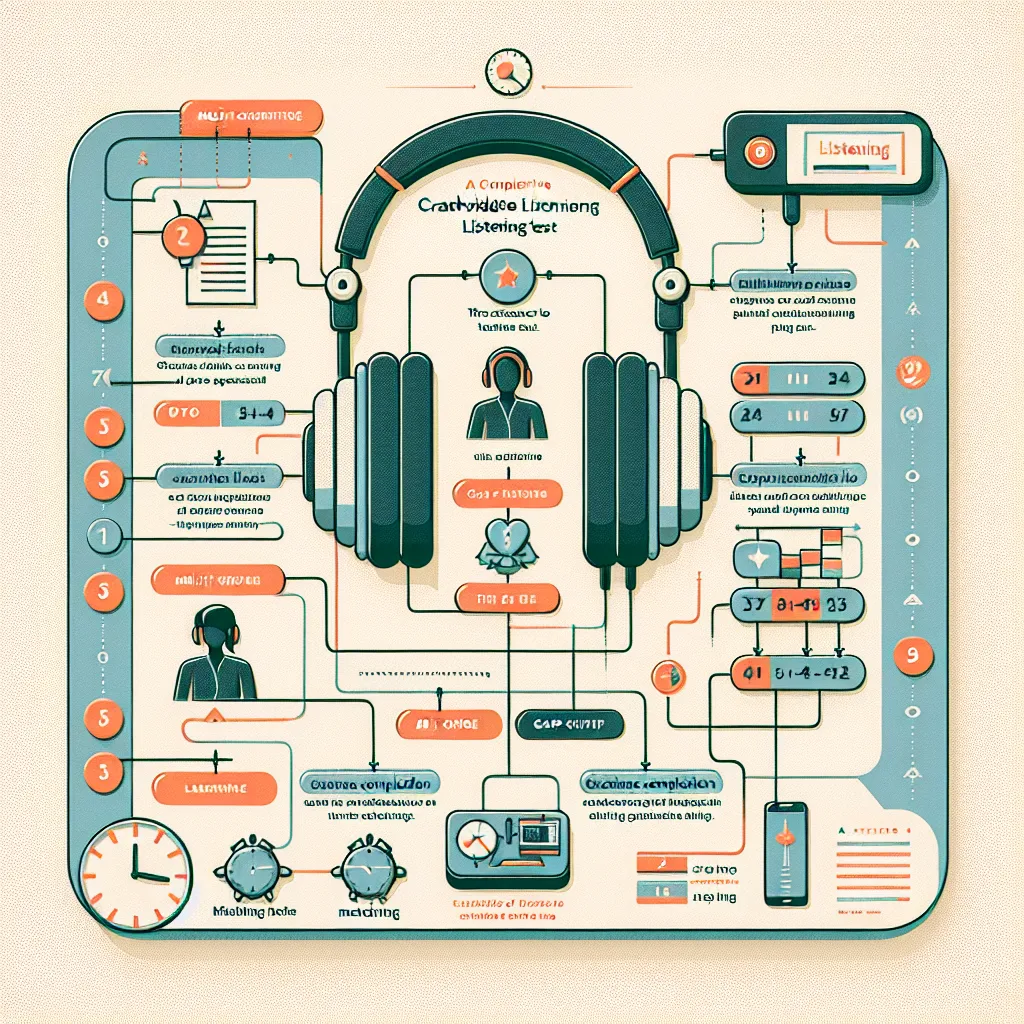Are you preparing for Cambridge exams and struggling to maintain focus during listening exercises? You’re not alone. Many students find the listening section challenging, but with the right strategies, you can significantly improve your concentration and performance. In this comprehensive guide, we’ll explore effective techniques to enhance your listening skills specifically for Cambridge exams.
Understanding the Importance of Listening Concentration
Listening concentration is a crucial skill for success in Cambridge exams. The ability to focus intently on audio material not only improves your comprehension but also helps you catch important details that can make a difference in your scores. Let’s delve into why this skill is so vital and how you can develop it.
The Cambridge Listening Test Format
Before we dive into improvement strategies, it’s essential to understand the structure of Cambridge listening tests. These tests typically include:
- Multiple-choice questions
- Sentence completion tasks
- Matching exercises
- Short answer questions
Each of these question types requires keen attention to detail and the ability to process information quickly while listening.
 Cambridge Listening Test Format
Cambridge Listening Test Format
Effective Techniques to Improve Listening Concentration
1. Practice Active Listening
Active listening involves fully engaging with the audio material. Here’s how to do it:
- Predict content before listening
- Focus on key words and phrases
- Visualize the scenario being described
- Take notes on important points
By actively participating in the listening process, you’ll find it easier to stay focused and retain information.
2. Develop Your Vocabulary
A strong vocabulary is essential for understanding a wide range of topics in Cambridge listening tests. To improve:
- Read extensively in English
- Learn new words in context
- Use vocabulary apps for daily practice
- Listen to English media (podcasts, news, audiobooks)
The more words you know, the less likely you are to get distracted by unfamiliar terms during the test.
3. Improve Your Note-Taking Skills
Effective note-taking can significantly boost your listening concentration. Try these techniques:
- Use abbreviations and symbols
- Focus on key information, not every word
- Practice with real Cambridge exam audio materials
- Review and organize your notes immediately after listening
Good note-taking helps you stay engaged and provides a useful reference for answering questions.
4. Utilize Concentration Exercises
Enhance your overall ability to focus with these exercises:
- Meditation and mindfulness practices
- Brain training games
- Timed focus sessions (e.g., Pomodoro Technique)
- Physical exercise to improve mental clarity
Regular practice of these exercises can lead to improved concentration during your Cambridge listening tests.
5. Create a Distraction-Free Environment
When practicing at home, set up an environment that mimics exam conditions:
- Find a quiet space
- Use noise-cancelling headphones if necessary
- Remove visual distractions
- Ensure comfortable seating and lighting
By replicating test conditions, you’ll train your brain to focus in similar situations during the actual exam.
 Distraction-Free Study Space
Distraction-Free Study Space
Common Pitfalls to Avoid
Be aware of these common mistakes that can hinder your listening concentration:
- Translating in your head: This slows you down and causes you to miss important information.
- Fixating on unknown words: Don’t get stuck on words you don’t understand; focus on overall meaning.
- Losing focus after making a mistake: Stay present and continue listening, even if you think you’ve missed something.
- Neglecting practice with various accents: Cambridge tests feature a range of English accents, so diversify your listening practice.
Next Steps: Putting Theory into Practice
Now that you’ve learned these techniques, it’s time to apply them:
- Set a daily listening practice schedule: Aim for at least 30 minutes of focused listening practice each day.
- Use official Cambridge practice materials: Familiarize yourself with the exact format and difficulty level of the exam.
- Track your progress: Keep a log of your practice sessions and note areas for improvement.
- Join a study group: Collaborate with others to share tips and stay motivated.
- Take mock tests regularly: Simulate exam conditions to build stamina and identify weak areas.
Remember, improving your listening concentration is a gradual process. Be patient with yourself and celebrate small victories along the way.
Conclusion
Enhancing your listening concentration for Cambridge exams is a skill that requires consistent practice and the right strategies. By implementing the techniques discussed in this guide—active listening, vocabulary development, note-taking skills, concentration exercises, and creating a distraction-free environment—you’ll be well on your way to improving your performance in the listening section.
Stay committed to your practice routine, avoid common pitfalls, and regularly assess your progress. With dedication and the right approach, you can significantly boost your listening skills and approach your Cambridge exam with confidence.
Do you have any personal strategies that have helped improve your listening concentration? Share your experiences in the comments below, and don’t forget to check out our other articles on Cambridge exam preparation techniques for more valuable insights!




